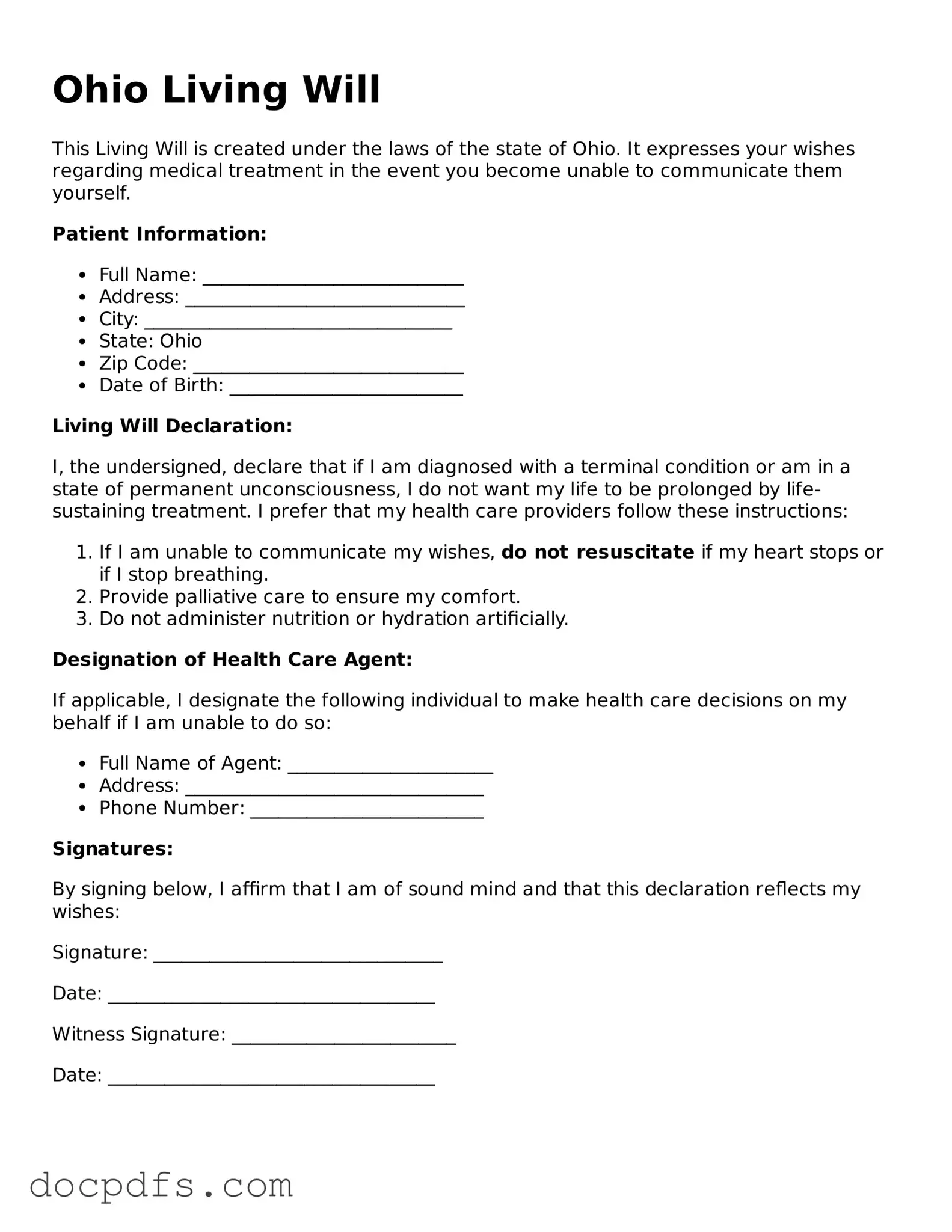Free Ohio Living Will Form
A Living Will is a legal document that outlines your preferences for medical treatment in case you become unable to communicate your wishes. In Ohio, this form allows you to specify what types of life-sustaining measures you want or do not want. Understanding this document is crucial for ensuring your healthcare decisions align with your values and desires.
Open Living Will Editor Now

Free Ohio Living Will Form
Open Living Will Editor Now

Open Living Will Editor Now
or
⇓ Living Will
Finish this form the fast way
Complete Living Will online with a smooth editing experience.